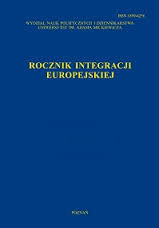Budowanie zdolności Unii Europejskiej na rzecz bezpieczeństwa i rozwoju. Analiza instytucjonalna w świetle teorii wymiany
Building the European Union’s security and development capabilities. An institutional analysis in terms of exchange theory
Author(s): Zbigniew D. CzachórSubject(s): Security and defense, EU-Approach / EU-Accession / EU-Development
Published by: Uniwersytet Adama Mickiewicza
Keywords: security; security and development; effectiveness of EU external actions; EU capabilities in the area of security and defense;
Summary/Abstract: The link between security and development is a key underlying principle of the EU’s comprehensive approach to external conflicts and crises and complementary to the internal security policies. As stated in the treaties, the EU’s external action objectives are to preserve peace, prevent conflicts and strengthen international security and also to foster the sustainable economic, social and environmental development of developing countries, with the primary aim of eradicating poverty. The primary objective of the EU’s development policy is the reduction and, in the long term, the eradication of poverty, but development policy also addresses sustainable development, inequalities, social injustice and human rights violations. This is essential in addressing the root causes of insecurity and conflict. The EU may use the Common Foreign and Security Policy and the Common Security and Defense Policy missions outside its territory for peacekeeping, conflict prevention and strengthening international security. The need for mutually reinforcing interventions in the areas of security and development is clear. The EU has consistently underlined that security is a precondition for development and that without development and poverty eradication there will be no sustainable peace. Creating and fostering the political, social and economic conditions for stability is essential for a country’s security and a prerequisite for its development. This security development nexus is central to maximizing the effectiveness of the EU’s external action. Current security capacity building efforts in partner countries span across a number of policy areas. They call on different instruments and focus on building effective, legitimate and sustainable institutions, including effective justice and security sectors, border control and coast guards. Capacity building activities include access to international instruments, political dialogue, technical cooperation (including joint research and innovation), training (knowledge transfer and skills development) and the provision of essential equipment and material. Training in the security sector seeks to improve a partner’s ability to ensure stability and the protection of citizens.
Journal: Rocznik Integracji Europejskiej
- Issue Year: 2016
- Issue No: 10
- Page Range: 7-20
- Page Count: 14
- Language: Polish

